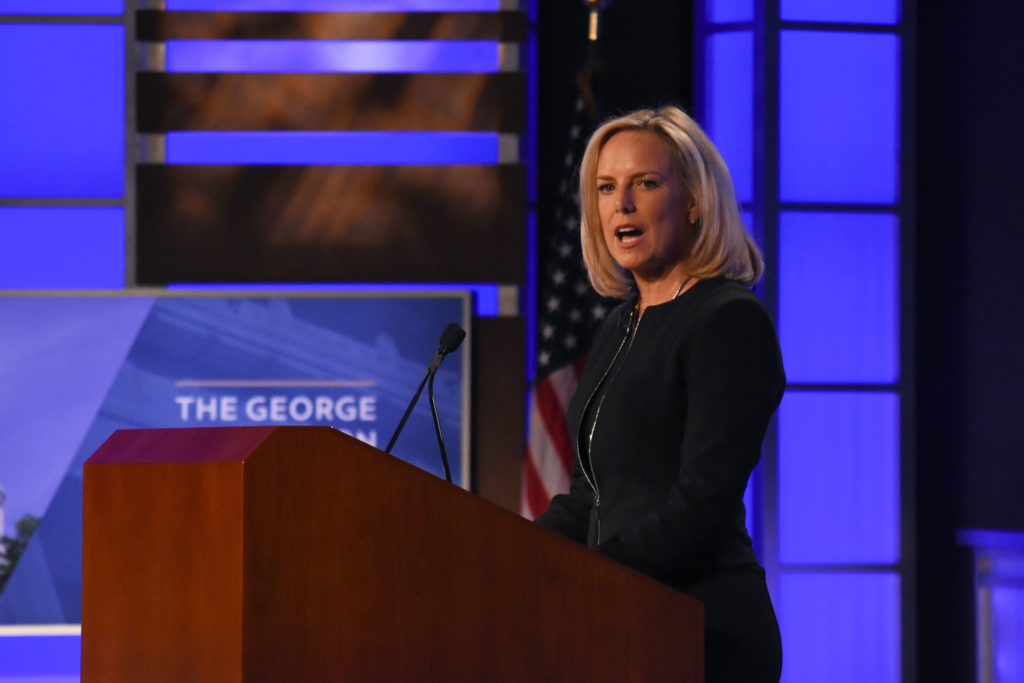Secretary of Homeland Security Kirstjen Nielsen delivered the annual State of Homeland Security address at Jack Morton Auditorium Monday.
Nielsen’s speech – which included a discussion of security measures to combat cyber attacks, terrorist plots and illegal immigration – was hosted by Auburn University’s Center for Cyber and Homeland Security. The event was followed by a question-and-answer session moderated by Frank Cilluffo, the director of Auburn University’s McCrary Institute for Cyber and Critical Infrastructure Security and the former head of GW’s cybersecurity center.
In her second event at GW this academic year, Nielsen said President Donald Trump’s administration has made homeland security its “No. 1 priority” and has “dramatically” enhanced efforts to defend the country. She said the U.S. government has transformed “from being highly reactive to highly resilient.”
But she said that despite the shift in attitude, the United States is still not adapting quickly enough to protect Americans from potential cyber attacks from foreign adversaries including China, Iran, Russia and North Korea.
“Although the overall security of the homeland is strong, the threats we face are graver than any time since Sept. 11, 2001,” she said.
Nielsen said the Islamic State, commonly known as ISIS, continues to be the primary terrorist threat in the country. She warned that the terrorist group’s reach “remains global” even though it has lost territory abroad.
She reviewed some of the “sweeping” security measures DHS has implemented during the year to thwart terrorist plots, including “proper vetting and tighter screening” and “sophisticated measures to detect concealed explosives and insider threats.”
Nielsen added that the National Vetting Center, a new departmental initiative that will “fuse law enforcement data and intelligence from across the government” to consolidate nationwide vetting of dangerous individuals, will become fully operational this year.
On the issue of border security, Nielsen defended Trump’s declaration of a national emergency at the southern border and denied that the president’s push for a border wall was based on a “manufactured crisis,” calling the situation a “real-life humanitarian and security catastrophe.”
Though all-time illegal border apprehensions have steadily declined from a peak of 1.6 million in 2000, Nielsen said apprehensions were rising again in the short-term, increasing from roughly 60,000 last December to an estimated 100,000 this month.
“Smugglers and traffickers have caught on, advertising a free ticket into America,” she said. “As a result, the flow of families and children has become a flood.”
Despite a series of lawsuits opposing Trump’s emergency declaration, Nielsen said DHS has commenced construction of parts of the border wall and has plans for “hundreds of new miles.”
Nielsen also discussed the Trump administration’s controversial former policy of separating children from their parents at the U.S.-Mexico border, urging Congress to “stop playing politics” and “change the law to allow us to keep families together through the immigration process.”
“This is a complex and emotional issue,” she said. “But no matter what side of the aisle you are on, we have common cause to uphold our sovereign responsibility to secure our borders, to facilitate legal trade and travel, to prevent drugs from poisoning our communities and to help vulnerable populations all at the same time.”





